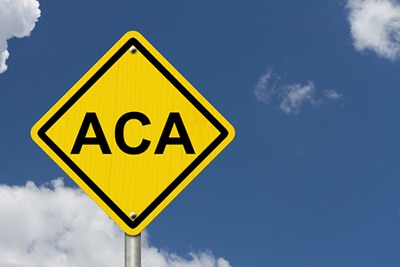Once again this year, employers and insurers were given an extra month to comply with the upcoming Affordable Care Act (ACA) requirements to furnish 1095-B and -C reports to individuals.
The deadline is being moved back from January 31 to March 2, 2021, the Internal Revenue Service (IRS) announced in Notice 2020-76. In addition, the good-faith transition relief that applied to last year’s Form 1094 and 1095 submittals is being extended to the reporting for 2020, the IRS stated.
“The Treasury Department and the IRS have determined that a substantial number of employers, insurers, and other providers of minimum essential coverage need additional time beyond the January 31, 2021, due date to gather and analyze the information and prepare the 2020 Forms 1095-B and 1095-C to be furnished to individuals,” the IRS explained in the October 2 notice.
The IRS therefore decided to extend the deadline by 30 days, but will not grant additional extensions on an individual basis. The notice does not affect the deadlines for filing the Forms 1094-B and -C and 1095-B and -C with the IRS, or the opportunity to request 30-day extensions of those dates.
Filing under Code Sections 6055 and 6056 is required to determine compliance with the individual and employer mandates, respectively. Section 6055 requires health insurers and sponsors of self-insured health plans to report on the type and period of coverage. Section 6056 requires applicable large employers to provide information about whether minimum essential coverage is offered to their full-time employees and their dependents.
Relief from 1095-B Penalties
As the agency did last year, the IRS also included relief from penalties for any failures to provide a Form 1095-B to individuals, when certain conditions are met.
“Because the individual shared responsibility payment is zero in 2020, an individual does not need the information on Form 1095-B in order to compute his or her federal tax liability or file an income tax return with the IRS,” the agency explained. Therefore, a reporting entity (health insurer or self-funded employer) required to furnish the 1095-B will not face penalties for failing to do so provided the entity:
- Posts a notice prominently on its website stating that responsible individuals may receive a copy of their 2020 Form 1095-B on request, and providing contact information for doing so; and
- Furnishes a 2020 Form 1095-B to any responsible individual within 30 days of receiving such a request.
This relief usually will not apply to self-funded employers that must provide the Section 6055 information on Form 1095-C because they are also applicable large employers subject to Section 6056, the IRS noted.
Good-Faith Relief
As in previous years, the IRS also is offering transitional relief for submittals that were timely but included incorrect or incomplete information, if these entities could show good-faith compliance efforts.
“In determining good faith, the IRS will take into account whether an employer or other coverage provider made reasonable efforts to prepare for reporting the required information to the IRS and furnishing it to employees and covered individuals,” according to the IRS notice.
However, the IRS warned that this would be the last year such good-faith relief will be available, and that the annual extensions of reporting deadlines may be drawing to a close as well. “Unless we receive comments that explain why this relief continues to be necessary, no relief related to the furnishing requirements under sections 6055 and 6056 will be granted in future years,” the IRS stated.
ACA reporting violations for 2020 are subject to penalties of up to $280 per filing ($560 for intentional disregard) under Code Sections 6721 and 6722. Penalties may be abated if the submitter establishes that the failures were due to reasonable cause and not willful neglect.
The post IRS Again Gives Employers Extension for ACA Reporting to Individuals appeared first on HR Daily Advisor.
